I’ve taken to going to sleep about 10 p.m. and getting up about 4 a.m. That means Amy stays up later, feeds Sorenne a couple of more times, and apparently gets to listen to me babble in my sleep.
This is nothing new. I’ve given entire lectures in my sleep – and I’m just talking about with Amy, not classrooms.
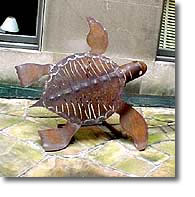 I’ve written about the trauma of only having turtles as pets while growing up. And the recent story in the Baltimore Sun and the terrible response about how those tiny turtles are OK as long as little kids don’t put the entire turtle in their mouths apparently triggered some sort of response.
I’ve written about the trauma of only having turtles as pets while growing up. And the recent story in the Baltimore Sun and the terrible response about how those tiny turtles are OK as long as little kids don’t put the entire turtle in their mouths apparently triggered some sort of response.
"I’m supposed to kill 6 of those f***ing flaming turtles"
Amy says she laughed, Doug started laughing, then said, "See, I’m wasting my resources when I’m not doing what I’m supposed to."
Amy, who likes to ask questions when I talk in my sleep, says,
"What are you supposed to be doing?"
"Keeping those f***ing new zealanders in line."
This probably had to do with the e-mails I was sending to New Zealanders Katie and Gary before I went to sleep. Or not.

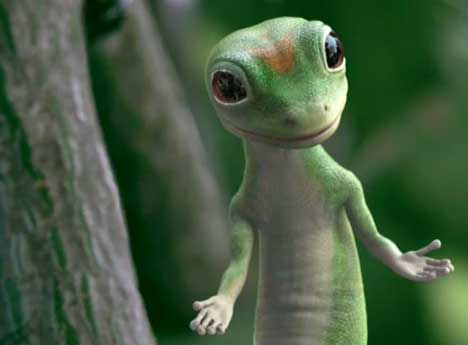 Some kid in Meole Brace, near Shrewsbury, which is apparently in the U.K., found a four-inch gecko in broccoli purchased from supermarket Tesco.
Some kid in Meole Brace, near Shrewsbury, which is apparently in the U.K., found a four-inch gecko in broccoli purchased from supermarket Tesco..jpg) In Canada to date, there have been 6 cases spread across Manitoba, Quebec and Nova Scotia with the same genetic fingerprint, and 14 other suspected cases in Ontario. No one has been hospitalized so far. There have been 48 cases reported in the U.S.
In Canada to date, there have been 6 cases spread across Manitoba, Quebec and Nova Scotia with the same genetic fingerprint, and 14 other suspected cases in Ontario. No one has been hospitalized so far. There have been 48 cases reported in the U.S.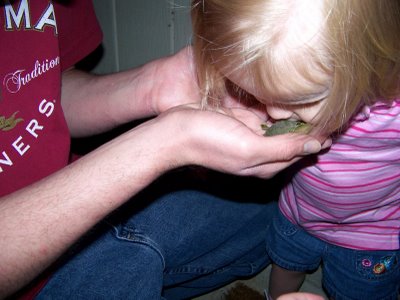
.jpg) A multi-state salmonella outbreak among people handling turtles, that includes California and Los Angeles County, was announced Tuesday by officials at the County of Los Angeles Department of Public Health Veterinary Public Health.
A multi-state salmonella outbreak among people handling turtles, that includes California and Los Angeles County, was announced Tuesday by officials at the County of Los Angeles Department of Public Health Veterinary Public Health.
.jpg) Turtles do not make good pets
Turtles do not make good pets Meanwhile,
Meanwhile, 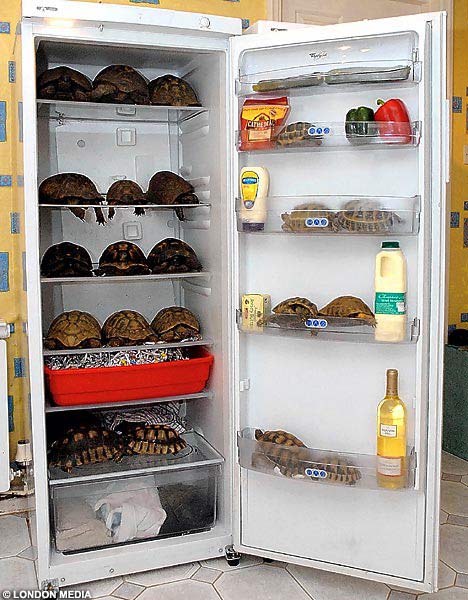 Mrs Neely who runs the Jersey-based Tortoise Sanctuary, had to set up the fridges because of the particularly mild winter.
Mrs Neely who runs the Jersey-based Tortoise Sanctuary, had to set up the fridges because of the particularly mild winter.
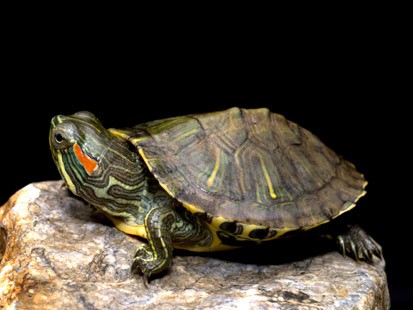 At least 103 cases have been reported since May 2007, and many of those infected were children under the age of 10, the CDC said.
At least 103 cases have been reported since May 2007, and many of those infected were children under the age of 10, the CDC said.